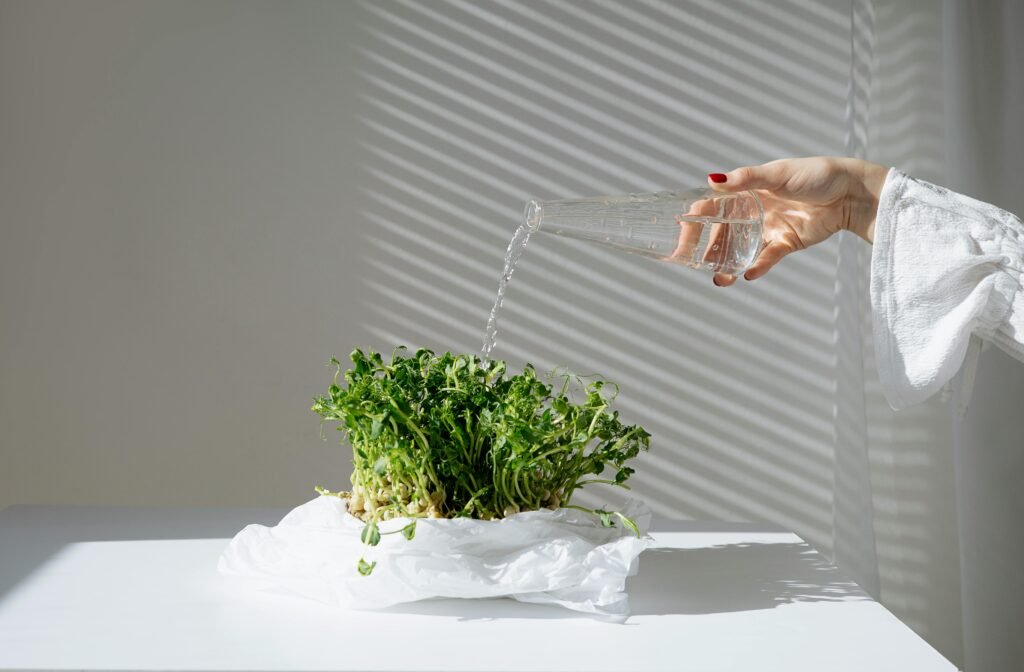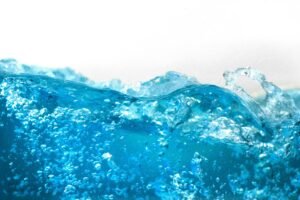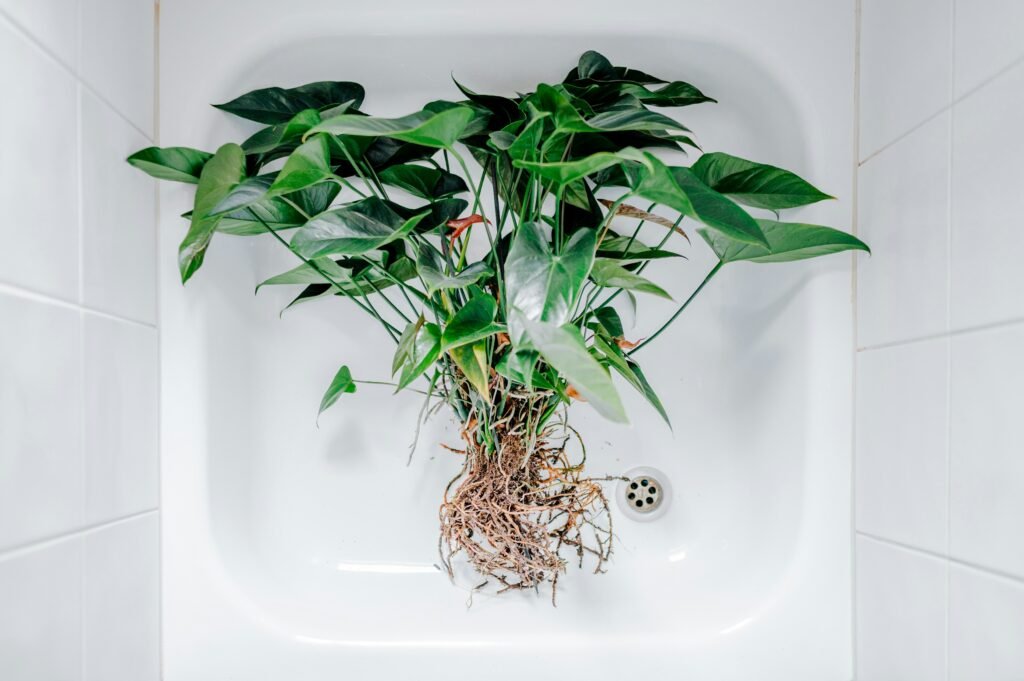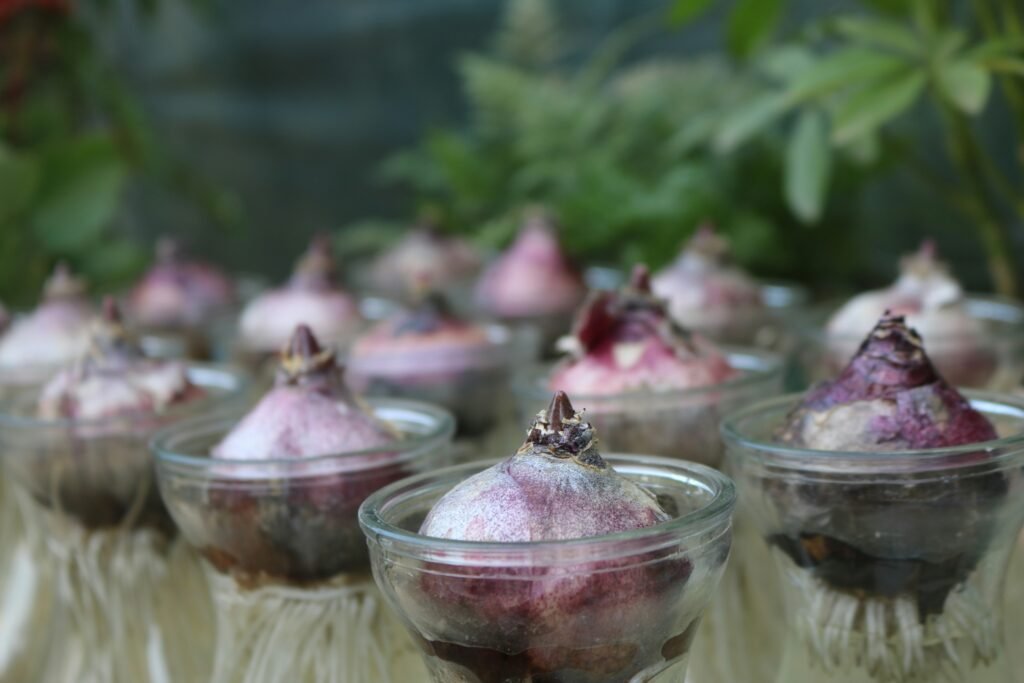The Importance of Water Quality in Hydroponics
In hydroponic systems, water is not just a carrier of nutrients but also a vital component of the plants’ growing environment. Poor water quality can lead to nutrient imbalances, pH fluctuations, and the accumulation of harmful substances, all of which can negatively affect plant growth. Therefore, selecting the right water source is essential to maintaining a healthy and productive hydroponic system.
Best Source of Water for Hydroponics
Reverse Osmosis (RO) Water
Reverse osmosis (RO) water is widely regarded as the best source of water for hydroponics. This water undergoes a filtration process that removes up to 99% of dissolved solids, including minerals, salts, and contaminants. The result is pure water with almost no impurities, providing a blank slate for growers to add precise nutrient formulations.
Advantages of Reverse Osmosis Water
- High Purity: RO water is free from contaminants and harmful substances, ensuring that plants receive only the nutrients added by the grower.
- Consistent Quality: Since RO water is highly purified, its quality is consistent, reducing the likelihood of nutrient imbalances or pH fluctuations.
- Control Over Nutrients: The absence of dissolved solids allows growers to have complete control over the nutrient composition of the water, optimizing it for specific plant needs.
Disadvantages of Reverse Osmosis Water
- Cost and Waste: RO systems can be expensive to install, and the filtration process typically produces wastewater, which may be a concern for environmentally conscious growers.
- Remineralization Required: Because RO water is almost completely devoid of minerals, it may require remineralization to provide essential trace elements for plants.
Other Water Sources for Hydroponics
Distilled Water
Distilled water, like RO water, is highly purified and free from most impurities. It is produced through a distillation process that removes contaminants by boiling the water and condensing the steam. Distilled water is another excellent option for hydroponics, especially for small-scale systems.
Advantages of Distilled Water
- High Purity: Distilled water is virtually free of contaminants, making it a reliable option for hydroponic systems.
- Readily Available: Distilled water can be purchased from most grocery stores, making it easily accessible for hobbyist growers.
Disadvantages of Distilled Water
- Cost: Regularly purchasing distilled water can become costly, particularly for large-scale hydroponic systems.
- Lack of Minerals: Like RO water, distilled water lacks essential minerals and may require supplementation.
Rainwater
Rainwater is a natural and sustainable source of water for hydroponics, particularly in regions with frequent rainfall. When properly collected and treated, rainwater can be a viable option for hydroponic systems.
Advantages of Rainwater
- Eco-Friendly: Rainwater collection reduces reliance on municipal water supplies, making it a more sustainable option.
- Soft Water: Rainwater is naturally soft, with low levels of dissolved minerals, which can help prevent nutrient imbalances.
Disadvantages of Rainwater
- Contamination Risk: Rainwater can become contaminated by airborne pollutants, roof debris, or bacteria, requiring filtration and treatment before use.
- Inconsistent Supply: Depending on the climate, rainwater availability may be inconsistent, necessitating supplementary water sources.
Tap Water
Tap water is the most readily available water source for hydroponics, but its suitability varies depending on the quality of the local water supply. Tap water often contains chlorine, chloramine, and dissolved minerals, which can affect plant growth if not properly treated.
Advantages of Tap Water
- Convenience: Tap water is easily accessible and requires no additional collection efforts.
- Cost-Effective: Using tap water is often the most economical option, especially in areas with low water treatment costs.
Disadvantages of Tap Water
- Chemical Additives: Tap water may contain chlorine or chloramine, which can be harmful to plants and beneficial microorganisms in the hydroponic system.
- High Mineral Content: In areas with hard water, high levels of calcium and magnesium can lead to nutrient lockout and scaling in the system.
Well Water
Well water can be a viable source for hydroponics, particularly in rural areas where municipal water is unavailable. However, the quality of well water can vary widely, so it must be tested for contaminants and mineral content before use.
Advantages of Well Water
- Independence: Well water provides an independent water source, free from municipal treatment processes.
- Availability: In rural areas, well water is often the only practical water source for hydroponic systems.
Disadvantages of Well Water
- Variable Quality: Well water quality can fluctuate based on the local geology, and it may contain high levels of minerals, metals, or contaminants.
- Testing Required: Regular testing and treatment may be necessary to ensure well water is suitable for hydroponics.
Factors to Consider When Choosing a Water Source
Water Quality Testing
Before selecting a water source for hydroponics, it’s essential to test the water for pH, electrical conductivity (EC), and total dissolved solids (TDS). These tests provide valuable information about the water’s suitability and the need for treatment or filtration.
Nutrient Compatibility
Different water sources have varying levels of dissolved minerals, which can interact with the nutrients added to the hydroponic solution. Understanding the mineral content of your water source allows for better nutrient management and prevents issues like nutrient lockout.
Cost and Sustainability
Cost and sustainability are important factors, especially for large-scale hydroponic operations. While RO systems offer the best water quality, they come with higher costs and environmental considerations. Rainwater and well water may be more sustainable, but they require careful management and treatment.
Conclusion
The best source of water for hydroponics depends on the specific needs of your system, the resources available, and your long-term goals. Reverse osmosis water stands out as the top choice for its high purity and control, but it comes with costs and maintenance requirements. Distilled water offers similar benefits on a smaller scale, while rainwater provides an eco-friendly alternative if properly managed. Tap and well water are viable options with the appropriate treatment and monitoring.
Regardless of the source, maintaining high water quality is paramount to the success of your hydroponic garden. By understanding the strengths and limitations of each water source, you can make informed decisions that support healthy plant growth and sustainable practices.
FAQs
Can I use rainwater for hydroponics?
Yes, rainwater can be used for hydroponics if properly collected, filtered, and treated. It’s a sustainable option but requires careful management to avoid contamination.
Is distilled water better than tap water for hydroponics?
Distilled water is generally better than tap water for hydroponics because it lacks the chemicals and minerals that can interfere with nutrient absorption. However, it may require supplementation with trace minerals.
How often should I test my hydroponic water?
It’s recommended to test your hydroponic water weekly for pH, EC, and TDS to ensure optimal conditions for plant growth. Regular testing helps prevent issues like nutrient imbalances.
What are the drawbacks of using tap water in hydroponics?
Tap water may contain chlorine, chloramine, and high levels of dissolved minerals, which can harm plants. Treating tap water to remove these chemicals is essential for hydroponic use.
Is reverse osmosis water worth the investment for hydroponics?
Yes, reverse osmosis water is worth the investment for hydroponics due to its high purity and consistency, which allow for precise nutrient management. However, it may require additional costs for installation and maintenance.
How do I treat well water for hydroponics?
Well water should be tested for pH, mineral content, and contaminants before use. Depending on the results, it may require filtration, pH adjustment, or the addition of nutrients to make it suitable for hydroponics.








